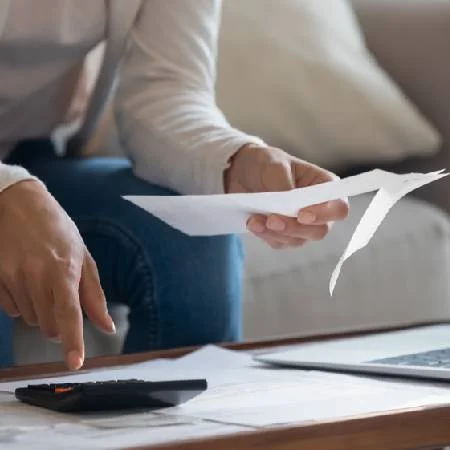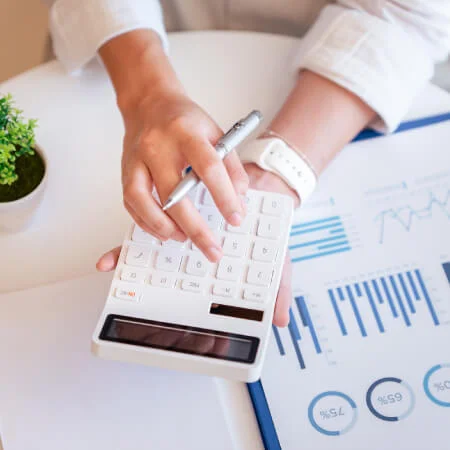UK citizens have seen a succession of crises over the last two to three years. The aftermath of Brexit has left us with an absence of promised global trade deals, the pandemic disrupted businesses and now the troubles in Eastern Europe have added to a steady rise in the cost of living. For most UK citizens now battling against constant price rises and unpaid debts, the future looks like an obstacle course full of financial sacrifices. The good news is, budgeting alone could make those obstacles easier to tackle.
When prices are rising and the future seems uncertain many feel a lack of uncertainty and control. One way of regaining control is by closely managing our liquid assets – cash in hand. Now is the time to focus on those financial aspects of our lives we may have left to drift for a long time.
As the saying goes – look after the pennies and the pounds will look after themselves. So, how can you ensure your money is working efficiently for you?
This may sound obvious but saving on the little things will have a marked effect on the future. It may feel pointless to focus on the little things because it doesn’t feel that they would make a real change. But they do add up and could make a healthy change to your overall out-goings.
Inflation seems to be getting worse. We moan and groan and shake our heads when we think about the future, but we can still make a big difference if we start now. Changes may be small but they can be a lifebelt for dealing with huge bills and future revenue.
The less we have to worry about budgeting (i.e. the more money we have above our means), the less we put boundaries around our incomings and outgoings. Now is the time for those boundaries.

When money is tight, it’s time to look at how we are going to meet weekly/monthly bills while still putting money aside for a healthy future. This means taking a long, hard look at your bank accounts.
Is there money just sitting around? How can you make that work for you? Is there enough money in your accounts to cover those never-ending bills?
In order to determine whether your money is working efficiently for you, you first of all need to be aware of how much money is going out in any one period. So, take any period of time which is relevant to your lifestyle and reflects an on-going repetition of your income and outgoings.
As an example, let’s take a period of a month. The first thing we will do is check how much money is going out. The money left (if any!) is what you have for rainy days, short-term savings and long-term savings. Don’t forget, you will need an emergency fund to bolster you when things go a bit awry.
Your short-term savings are for those unexpected bills, must-have treats like holidays and new shoes for the kids, for example. Your long-term savings make you safe and happy in your retirement. It’s important that you don’t sacrifice your long-term future – factor it into your present needs.
Once you have an idea of expenditure, how much you need per month to live and how much you can put away for savings, set a budget for each. With this in mind, consider the bank accounts themselves. Are they the best vehicles to get you a good return on your money, or is your money just sitting idle?
Consider finding a new home for your finances, such as higher interest accounts for longer-term savings. Decide how much you will put into each account per month and keep to your budget. Think about creating accounts which allow you to separate long-term, short-term and rainy savings. This will make it easier for you to track available funds.
Going through your accounts checking your outgoings can seem really dry and boring – but actually it can be really rewarding. What you are looking for are those outgoings you do not need anymore. By getting rid of redundant direct debits and standing orders you can save yourself a great deal of money and stress.
Ok. Now we are down to actual expenditure and still there needs to be some cost-cutting. Most people have recurring bills every so often and it’s easy to just pay that amount without questioning whether you can get the same quality product at a cheaper rate.
For instance, is there an outlet for looking into a cheaper mobile phone provider? Do we really use all the benefits that we are paying out for? Searching the market could result in a big saving.

Is it time to balance essentials costs against luxury items? Make sure you are aware how much there needs to be in your account to take care of all essential costs. In order to keep an eye on the luxury items, create another personal account for this expenditure only, such as dinner out and lifestyle costs.
We all need that treat to look forward to, so make sure you allow for it. This may be the time to re-evaluate how much you can spend on non-essentials in any one month.
Look out for those cool deals. It may only seem like a few pence at the time but they all add up. A few minutes spent hunting now could mean big savings in the future.
When income comfortably covers out-goings, we often fall into repetitive habits. The money comes in, the bills are paid and so on. Maybe it’s time to revisit not just how much you pay out, but how a change in your domestic systems can revolutionise your costs. For instance, solar energy could be a great alternative to the rising heating bills. Reducing the amount of long journeys, considering electric cars, or using public transport could also have a positive effect on petrol costs.
Loans may ease financial stress in the short-term but they are likely to lead to more anguish in the long-term. The answer is to live within your means – it just may mean you need to re-evaluate what your means are, in order to cope with this period of high inflation. However, there may be other outlets of income you may not have considered. If you are 55 or over, you can lawfully withdraw your pension. Pensions can be quite complex and you must leave enough money for your retirement needs – but it may well be worth investigating with a regulated financial adviser. Here at Pension Access, our regulated financial adviser can help you know how much you can take from your pension and if it is the right thing for you.
There is no doubt that the current rise in prices in the UK is going to bring difficult times for many. And if you don’t know what assets you have, you can’t begin to deal with it. Take a look at your finances and make some of the changes mentioned above where you can to ensure you are still spending within your means. These are extraordinary times so it may mean adapting new lifestyles to ease finances. Above all, start each day with a budget, and don’t sacrifice your future for present needs.
We can help you to make the best possible decisions when it comes to your pension.



